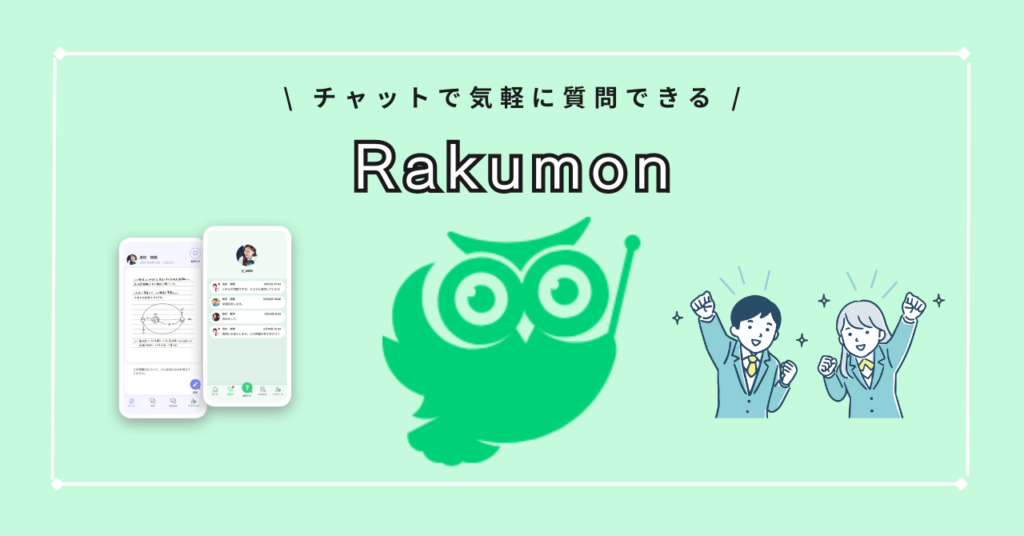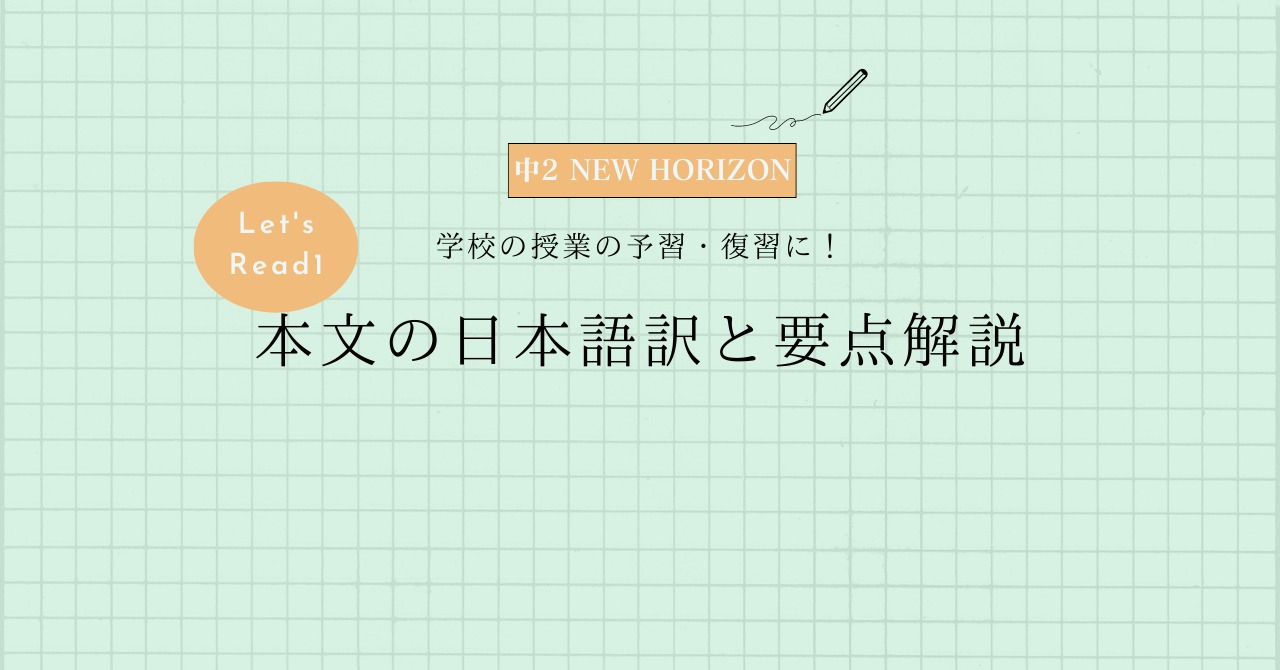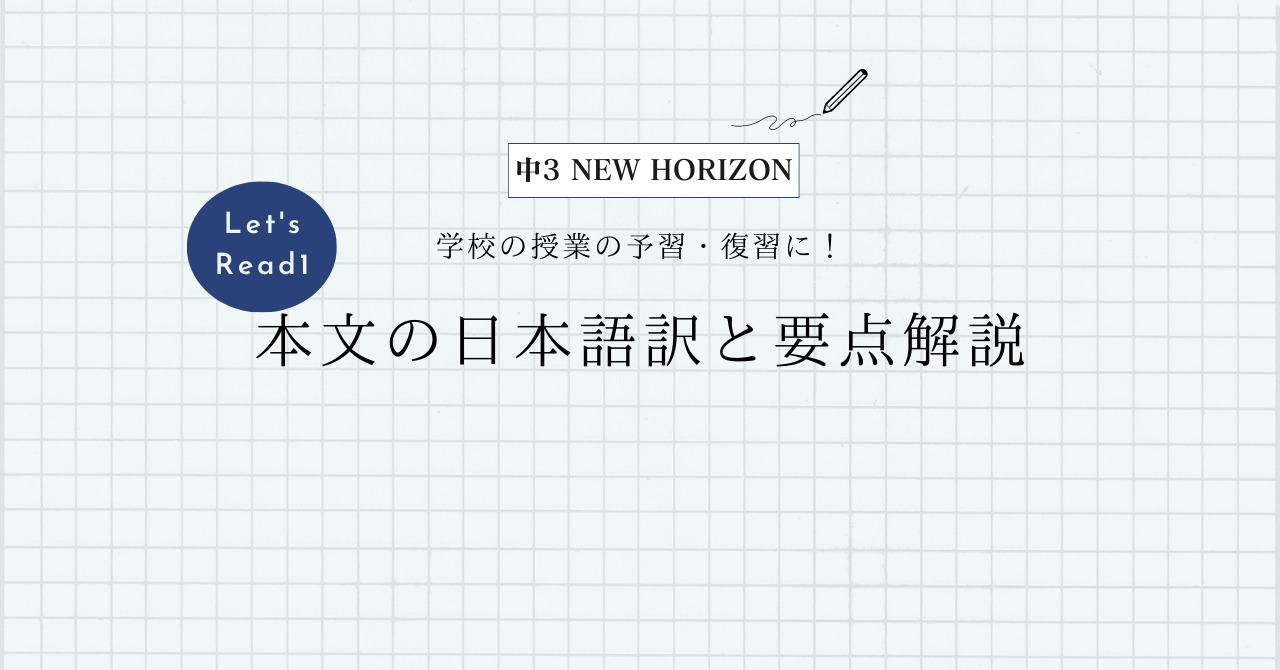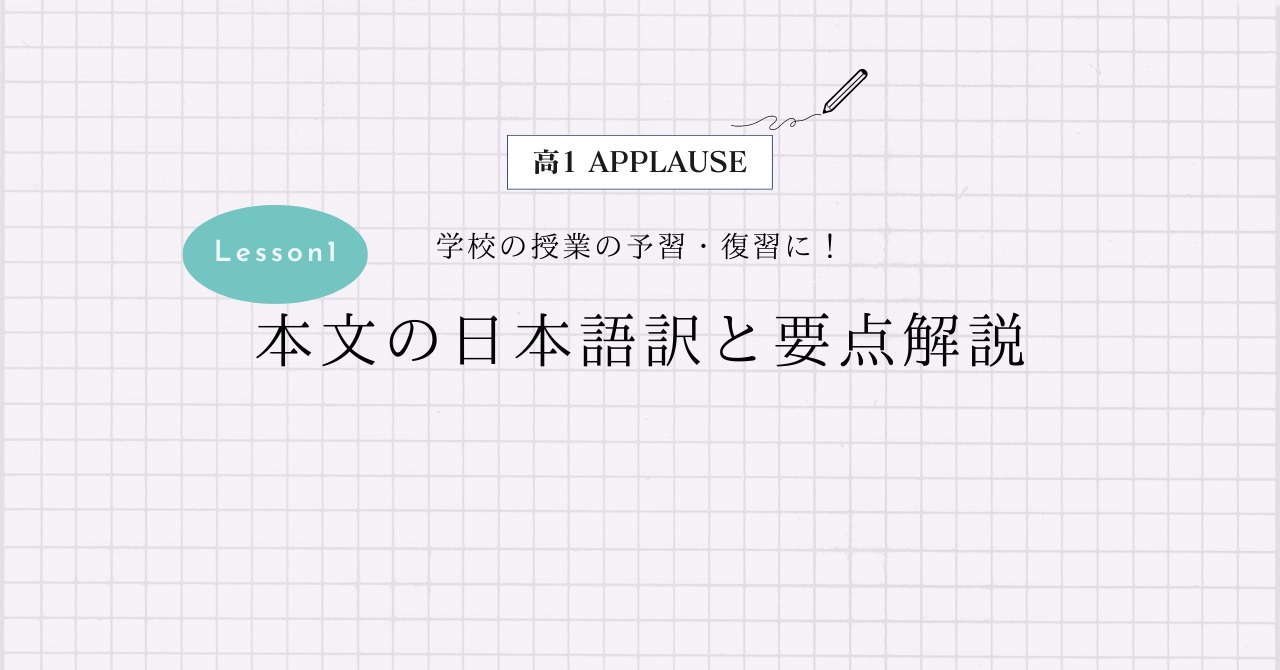東京書籍 中学2年生 NEW HORIZON(ニューホライズン) Let’s Read3の本文の日本語訳と重要箇所の解説です。
>中2NEW HORIZON Let’s Read1 本文和訳
>中2NEW HORIZON Let’s Read2 本文和訳
- Let’s Read3 本文と日本語訳
- Let’s Read3 重要事項の解説
- He was a university student, and one day he was very attracted to a photograph in a book about Alaska.
- It was a photograph of a small village in the middle of the wilderness.
- Michio wanted to visit and experience that place for himself.
- So, he wrote a letter to the mayor of the village.
- The mayor invited Michio to Alaska, and his dream came true.
- For one summer, Michio lived among the Inuit people in that Alaskan village.
- He learned about Inuit food, family life, and culture.
- He also learned how to live without city conveniences.
- The Inuit hunt for meat and gather berries for food.
- They have a long tradition of living harmoniously with nature.
- Michio understood something very important ― all living things share this planet.
- That summer, he became a part of the Alaskan wilderness.
- After Michio finished university in Japan, he returned to Alaska.
- For 19 years, he traveled around Alaska as a photographer.
- He often camped in severe weather to take pictures of wild animals.
- Once he stayed in the tundra for a month to take pictures of caribou.
- Michio felt lonely in the wilderness, but he also felt free.
- Michio shared his feelings of freedom and wonder in his photographs.
- He showed us playful polar bears, beautiful mountains, and other wonderful scenes.
- However, his life ended suddenly.
- He was killed by a bear when he was camping alone in Kamchatka in 1996.
- Michio once wrote, ‘We only have one life to live.”
- Michio’s life was short, but his pictures will live with us forever.
- His pictures will stay the same, but the Alaskan wilderness is changing.
- Its glaciers are disappearing because of global warming.
- The polar bears there cannot find enough food.
- The habitat of the caribou is growing smaller.
- Even the Inuit are losing their land.
- Now they have to change their traditional way of life.
- As ice turns into water, and sea levels rise, Alaskan islands get smaller.
- Shishmaref is slowly disappearing.
- Scientists say the Arctic is getting warmer twice as fast as the rest of the Earth.
- Our lives will change, too, if we do not take care of our planet.
- Michio’s photographs remind us of our beautiful past, but the future may be very different.
- What can we do to pass on this beauty to future children?
- Let’s Read3 まとめ
Let’s Read3 本文と日本語訳
Pictures and Our Beautiful Planet
「写真と私たちの美しい惑星」
Pre-reading
➀ Where is Alaska?
「アラスカはどこにありますか?」
② What are in the photograph?
「写真の中には何がありますか?」
One photograph changed Hoshino Michio’s life.
「1枚の写真が星野道夫さんの人生を変えました。」
He was a university student, and one day he was very attracted to a photograph in a book about Alaska.
「彼は大学生で,ある日アラスカについての本にあった写真にとても惹きつけられました。」
It was a photograph of a small village in the middle of the wilderness.
「それは荒野の真ん中にある小さな村の写真でした。」
The village was Shishmaref.
「その村はシシュマレフといいました。」
Michio wanted to visit and experience that place for himself.
「道夫さんは自分でその場所を訪れて体験したいと思いました。」
So, he wrote a letter to the mayor of the village.
「そのため,彼は村の村長に手紙を書きました。」
The mayor invited Michio to Alaska, and his dream came true.
「村長は道夫さんをアラスカに招待し,彼の夢は実現しました。」
In-reading 1
➀ What book did Michio read?
「道夫さんは何の本を読みましたか?」
-He read a book about Alaska.
「アラスカについての本を読みました。」
② What did Michio do?
「道夫さんは何をしましたか?」
-He wrote a letter to the mayor of Shishmaref.
「彼はシシュマレフの村長に手紙を書きました。」
For one summer, Michio lived among the Inuit people in that Alaskan village.
「ある夏の間,道夫さんはアラスカの村でイヌイットの人々の中で生活しました。」
He learned about Inuit food, family life, and culture.
「彼はイヌイットの食べ物,家族生活,文化について学びました。」
He also learned how to live without city conveniences.
「また,都市の便利なものがない状態での生き方も学びました。」
The Inuit hunt for meat and gather berries for food.
「イヌイットは肉を求めて狩りをし,食料としてベリーを集めます。」
They have a long tradition of living harmoniously with nature.
「彼らには自然と調和して生活するという長い伝統があります。」
Michio understood something very important ― all living things share this planet.
「道夫さんはとても重要なこと,つまりすべての生き物はこの惑星を共有しているということを理解しました。」
That summer, he became a part of the Alaskan wilderness.
「その夏,彼はアラスカの荒野の一部になりました。」
In-reading 2
What did Michio learn in the Alaskan village?
「道夫さんはアラスカの村で何を学びましたか?」
-He learned about Inuit food, family life, culture and how to live without city conveniences.
「彼はイヌイットの食べ物,家族生活,文化,そして都市の便利なものがない状態での生き方について学びました。」
How do Inuit people live?
「イヌイットの人々はどうやって生活していますか?」
-They hunt for meat and gather berries for food.
「彼らは肉を求めて狩りをし,食料としてベリーを集めます。」
After Michio finished university in Japan, he returned to Alaska.
「道夫さんは日本で大学を卒業した後,アラスカに戻りました。」
For 19 years, he traveled around Alaska as a photographer.
「19年間,彼は写真家としてアラスカを旅して回りました。」
He often camped in severe weather to take pictures of wild animals.
「野生動物の写真を撮るために,しばしば厳しい天候の中でキャンプをしました。」
Once he stayed in the tundra for a month to take pictures of caribou.
「一度,カリブーの写真を撮るために1か月間ツンドラに滞在しました。」
Michio felt lonely in the wilderness, but he also felt free.
「道夫さんは荒野の中で孤独に感じましたが,自由も感じました。」
Michio shared his feelings of freedom and wonder in his photographs.
「道夫さんは写真の中で自由と感嘆という感情を共有しました。」
He showed us playful polar bears, beautiful mountains, and other wonderful scenes.
「彼は私たちに楽しげなホッキョクグマ,美しい山,その他の素晴らしい光景を見せてくれました。」
However, his life ended suddenly.
「しかし,彼の人生は突然終わりました。」
He was killed by a bear when he was camping alone in Kamchatka in 1996.
「1996年にカムチャツカ半島で1人でキャンプをしていたときに,クマに殺されてしまいました。」
Michio once wrote, ‘We only have one life to live.”
「道夫さんはかつて,『私たちは1つだけしか命を持っていない。』と書きました。」
Michio’s life was short, but his pictures will live with us forever.
「道夫さんの人生は短かったですが,彼の写真は私たちと一緒に永遠に生きているでしょう。」
In-reading
➂ How did Michio feel when he stayed in the tundra for a month?
「道夫さんはツンドラに1か月間滞在したとき,どう感じましたか?」
-He felt lonely in the wilderness, but he also felt free.
「彼は荒野の中で孤独を感じましたが,自由も感じました。」
④ What did Michio show us in his photographs?
「道夫さんは私たちに写真の中で何を見せてくれましたか?」
-He showed us playful polar bears, beautiful mountains, and other wonderful scenes.
「彼は私たちに楽しげなホッキョクグマ,美しい山,その他の素晴らしい光景を見せてくれました。」
His pictures will stay the same, but the Alaskan wilderness is changing.
「彼の写真は同じままですが,アラスカの荒野は変化しています。」
Its glaciers are disappearing because of global warming.
「そこの氷河は地球温暖化の影響でなくなっていっています。」
The polar bears there cannot find enough food.
「そこのホッキョクグマは十分な食べ物を見つけられません。」
The habitat of the caribou is growing smaller.
「カリブーの生息地はより小さくなっていっています。」
Even the Inuit are losing their land.
「イヌイットでさえ土地を失いつつあります。」
Now they have to change their traditional way of life.
「今,彼らは伝統的な生活のしかたを変えなければなりません。」
As ice turns into water, and sea levels rise, Alaskan islands get smaller.
「氷が水に変わり,海面が上昇するので,アラスカの島はより小さくなっています。」
Shishmaref is slowly disappearing.
「シシュマレフはゆっくりと消えていっています。」
Scientists say the Arctic is getting warmer twice as fast as the rest of the Earth.
「科学者は,北極地方は地球の残りの地域の2倍の速さで暖かくなっていると言っています。」
Our lives will change, too, if we do not take care of our planet.
「もし私たちが地球を大切にしないなら,私たちの生活も変わるでしょう。」
Michio’s photographs remind us of our beautiful past, but the future may be very different.
「道夫さんの写真は私たちに美しい過去を思い出させてくれますが,未来は大きく異なっているかもしれません。」
What can we do to pass on this beauty to future children?
「この美しさを未来の子どもたちに伝えるために私たちは何ができるでしょうか?」
In-reading
⑤ What is happening to Alaska?
「アラスカに何が起きていますか?」
-As ice turns into water, and sea levels rise, its islands get smaller.
「氷が水に変わり,海面が上昇するので,アラスカの島はより小さくなっています。」
⑥ What is happening to Shishmaref?
「シシュマレフに何が起きていますか?」
-It is slowly disappearing.
「シシュマレフはゆっくりと消えていっています。」

Let’s Read3 重要事項の解説
He was a university student, and one day he was very attracted to a photograph in a book about Alaska.
“university”は「大学」,“photograph”は「写真」という名詞です。
“one day”は「ある日」という意味ですね。
“attract”は「惹きつけられる」という形容詞になります。
It was a photograph of a small village in the middle of the wilderness.
“of”は前置詞で,”A of B”の形で「BのA」というように後ろから前に訳します。
“village”は「村」という名詞で,“in the middle of~”は「~の真ん中で」という表現になります。
“wilderness”は「荒野」という名詞ですね。
Michio wanted to visit and experience that place for himself.
“want to 動詞の原形”で「~したい」という重要表現です!「不定詞の名詞的用法」と一緒に確認しておきましょう。
ここでは“visit”と“experience”が“to”と繋がっていますね。
“experience”は「を経験する,体験する」という動詞で,“place”は「場所」という名詞です。
“for oneslf”は「自力で」という意味になります。
So, he wrote a letter to the mayor of the village.
“so”は「だから」という接続詞です。
“mayor”は「市長,村長」といった名詞になります。
The mayor invited Michio to Alaska, and his dream came true.
“invite”は「を招待する」という動詞です。
“come true”は「実現する」という重要表現になります。
For one summer, Michio lived among the Inuit people in that Alaskan village.
“for”は「~の間」という意味で使われていますね。
“among”は「~の間」という前置詞ですが,これは物理的な物との間という意味です。
同じ表現で”between A and B”がありますが,これは「2つの間」という意味で,”among”は「3つ以上の間」という意味になります。
He learned about Inuit food, family life, and culture.
“learn”は「を学ぶ」という動詞です。
“life”は「人生,生活」,“culture”は「文化」という名詞ですね。
He also learned how to live without city conveniences.
“also”は「また,さらに」といった副詞で,付け加える役割があります。色々な文で使うので必ず覚えましょう!
“how to 動詞の原形”は「疑問詞+不定詞」で,「~のしかた」と訳しますね。
“without”は「~なしで」という前置詞で,“convenience”は「便利さ,便利なもの」という名詞になります。
The Inuit hunt for meat and gather berries for food.
“hunt”は「狩りをする」,“gather”は「を集める」という動詞です。
“meat”は「肉」,“berry”は「ベリー」というイチゴやブルーベリーといった果実のことですね。
They have a long tradition of living harmoniously with nature.
“They”は“The Inuit”を指しています。
“tradition”は「伝統」,“nature”は「自然」という名詞になります。
“harmoniously”は「調和して」という副詞ですね。
Michio understood something very important ― all living things share this planet.
“understood”は“understand(を理解する)”の過去形です。
“something”は「何か」という代名詞で,“-thing”の形の代名詞を形容詞で修飾するときは必ず後ろから修飾します。
“important something”としないように要注意です!
「―」は「ダッシュ」といって,直前に出てきた内容を補足する働きがあります。ここでは“something very important”を具体的にしていますね。
“living thing”は「生き物」で,“share”は「を共有する」という動詞,“planet”は「惑星」という名詞になります。
That summer, he became a part of the Alaskan wilderness.
“became”は“become(になる)”の過去形です。
“part”は「部分」という名詞で,“a part of~”は「~の一部」という表現です。
After Michio finished university in Japan, he returned to Alaska.
この文では「接続詞after」が使われていますね。
“finish”は「を終える」という動詞ですが,今回は「卒業する」と訳しました。
“return”は「戻る」という動詞になります。
For 19 years, he traveled around Alaska as a photographer.
“for 数字”は「~間」という重要表現です。
“travel around~”は「~を旅して回る」といった意味で,“as”は「~として」という重要な前置詞です。
“photographer”は「写真家」という名詞になります。
He often camped in severe weather to take pictures of wild animals.
“after”は「~の後で」という前置詞です。“camp”は「キャンプをする」という動詞ですね。
“severe”は「厳しい」,“wild”は「野生の」という形容詞でになります。
また,“to take”は「不定詞の副詞的用法」になっていますね。
“often”は「よく,しばしば」という意味の頻度を表す副詞です。
他には“usually(普段は)”,“sometimes(時々)”,“always(いつも)”,“never(絶対にない)”などがあります。
頻度の感覚としては,always(100%)>usually(90%)>often(70%)>sometimes(50%)>never(0%)といった具合になります。
また,頻度を表す副詞はどこに置くのかも重要です。置く位置は,文章で使われている動詞によって変化します。
一般動詞の場合はその前,be動詞の場合はその後ろに置きます。以下に例文を挙げておきます。
一般動詞:I usually play soccer on Saturdays.「土曜日にたいていサッカーをする」
be動詞:He is often sleepy.「彼はよく眠そうにしている」
Once he stayed in the tundra for a month to take pictures of caribou.
“once”は「一度,かつて」という副詞になります。
“tundra”は「ツンドラ」という,ロシアや北アメリカ大陸の北極周辺に広がる凍結した荒原のことです。“caribou”は「カリブー」という動物ですね。
また,“to take”は「不定詞の副詞的用法」になっていますね。
Michio felt lonely in the wilderness, but he also felt free.
“felt”は“feel(感じる)”の過去形です。
“lonely”は「孤独な」,“free”は「自由な,暇な」という形容詞ですね。
“also”は「また,さらに」といった副詞で,付け加える役割があります。色々な文で使うので必ず覚えましょう!
Michio shared his feelings of freedom and wonder in his photographs.
“share”は「を共有する」という動詞です。
“feeling”は「感情」,“freedom”は「自由」,“wonder”は「感嘆,驚嘆」という名詞になります。
He showed us playful polar bears, beautiful mountains, and other wonderful scenes.
“show 人 もの”で「人にものを見せる,示す」となって,“show もの to 人”でも同じ意味になります。
他には“bring”, “teach”, “tell”, “give”などが同じ使い方をできるので必ず書き換えられるようにしておきましょう。
“playful”は「楽しげな」,“other”は「他の」という形容詞になります。
“polar bear”は「ホッキョクグマ」で,“scene”は「光景,景色」という名詞ですね。
However, his life ended suddenly.
“however”は「しかし」という意味の副詞になります。
同じ意味で“but”がありますが,こちらは接続詞なので品詞が異なります。“but”は“文A,but 文B”というように,2つの文を繋ぐ際に使います。
“文A. But 文B.”というように,“but”を文の先頭に置いて1文だけで完結させるのは原則NGとなります。
“end”は「終わる」という動詞で,“suddenly”は「突然に」という副詞ですね。
He was killed by a bear when he was camping alone in Kamchatka in 1996.
この文では「接続詞when」,「受動態」が使われていますね。
“kill”は「を殺す」という動詞になります。“alone”は「1人で」という副詞ですね。
また,“was camping”は「過去進行形」になっています。
Michio once wrote, ‘We only have one life to live.”
“once”は「かつて,一度」という副詞になります。
“only”は「~しか,~だけ」といった意味の副詞です。今回は「1つしかない」といったニュアンスですね。
“to live”は「不定詞の形容詞的用法」になっていますね。直訳すると「生きるための命」といった感じです。
Michio’s life was short, but his pictures will live with us forever.
名詞に‘sを付けると「~の」という所有を表します。
直前の名詞が複数形のときは” teachers‘ “のようにアポストロフィーだけを最後に付けます。
“short”は「短い」という形容詞で,“forever”は「永遠に」という副詞ですね。
His pictures will stay the same, but the Alaskan wilderness is changing.
“same”は「同じもの・こと」という代名詞になります。「彼の写真は彼の写真のまま」といった意味ですね。
また,“is changing”は「現在進行形」になっています。
Its glaciers are disappearing because of global warming.
“Its”は「その」という所有格で,“the Alaskan wilderness”を指しています。
“glacier”は「氷河」という名詞で,“global warming”は「地球温暖化」ですね。
“disappear”は「消える,なくなる」という動詞で,ここでは「現在進行形」になっています。
“because of~”は「~が理由で,~のせいで」という原因や理由を表す重要表現です。
The polar bears there cannot find enough food.
“there”は「そこで」といった副詞で,“the Alaskan wilderness”を指しています。
“find”は「を見つける」という動詞で,“enough”は「十分な」という形容詞です。
The habitat of the caribou is growing smaller.
“habitat”は「生息地」という名詞です。
“grow”は「に成長する,なる」という動詞で,ここでは「現在進行形」になっています。
Even the Inuit are losing their land.
“even”は「~でさえ」という副詞ですね。
“lose”は「を失う」という動詞で,ここでは「現在進行形」になっています。
“their”は“the Inuit”を指しています。
“land”は「土地」という名詞になります。
Now they have to change their traditional way of life.
“have to 動詞の原形”は「~しなければならない」という重要表現ですね。
“their”は“the Inuit”を指しています。
“traditional”は「伝統的な」という形容詞で,“way”は「方法,道」という名詞になります。
As ice turns into water, and sea levels rise, Alaskan islands get smaller.
“as”は接続詞で「~ので」という理由を表します。“because”と同じ意味ですね。
“ice”は「氷」,“sea level”は「海水面」,“island”は「島」という名詞になります。
“turn into~”は「~に変化する」,“rise”は「上がる」,“get 形容詞”は「~になる」という意味です。
“smaller”は「比較級」になっていますね。
Shishmaref is slowly disappearing.
“slowly”は「ゆっくりと」という副詞ですね。
“disappear”は「消える,なくなる」という動詞で,ここでは「現在進行形」になっています。
Scientists say the Arctic is getting warmer twice as fast as the rest of the Earth.
“say”の後ろには「接続詞that」が省略されています。
“Arctic”は「北極地方」,“rest”は「残り」,“Earth”は「地球」という名詞になります。
“get 形容詞”は「~になる」という意味で,ここでは「現在進行形」になっています。
“warm”は「暖かい」という形容詞で,“warmer”は「比較級」になっていますね。
また,ここでは「同級比較」も使われていて,“as”の前に回数を示す単語を入れると「~倍」という意味が加わります。
“twice”は「2回」なので「2倍」になりますね。ちなみに3倍以降は“~times”を入れてあげます。
Our lives will change, too, if we do not take care of our planet.
この文では「接続詞if」が使われていますね。
“too”はカンマとセットで文末に付けると「~も」という意味になります。
“take care of~”は「~の世話をする,大切にする」という重要表現です。
Michio’s photographs remind us of our beautiful past, but the future may be very different.
“remind A of B”は「AにBを思い出させる」という重要表現です。
“past”は「過去」という名詞ですね。
“may”は「~かもしれない」という助動詞で,“different”は「異なった」という形容詞ですね。
What can we do to pass on this beauty to future children?
“pass on~”は「~を伝える」という表現になります。
“to pass”は「不定詞の副詞的用法」になっていますね。
“beauty”は「美しさ」,“children”は「子どもたち」という名詞です。“children”は“child”の複数形です。

Let’s Read3 まとめ
以上がLet’s Read3の日本語訳となります。
ここでは今までに習った文法がたくさん使われていますね。どれも大切な文法なのでしっかり理解していきましょう!
何か分からない点や他に解説してほしい点があれば,お気軽にコメントしてください!





コメント